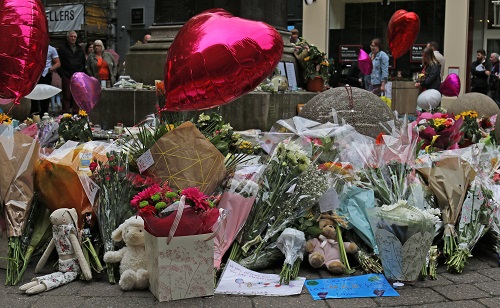Workers on UK festival sites have raised concerns about their safety and working conditions, pointing to long hours and extreme heat, in a survey carried out by the Bectu union.
News
UK festival workers voice safety and wellbeing concerns in new survey by union
The union, which represents workers in the live events industry, said its research uncovered the “often grim reality” faced by staff who work behind the scenes to build and operate music festivals around the country.
 Photograph: iStock/noonard
Photograph: iStock/noonard
Half of the respondents surveyed by Bectu said they sometimes or usually felt unsafe while working at festivals in the UK last year. One-fifth of workers said working conditions had worsened in the last five years, with three in 10 reporting that they had experienced a risk to their physical safety, such as working at height without sufficient training or equipment.
The survey found that more than a third (35 per cent) of respondents did not know who to report health and safety concerns to on site. More than 70 per cent of those surveyed reported working long hours, with some pointing to 18-20-hour days with as little as three hours off between shifts.
More than 40 per cent said they had to work in extreme heat without adequate provisions, while more than 70 per cent reported sanitation issues, such as substandard washing and toilet facilities.
“The issue of long working hours and the physical and mental health risks this creates is well-established in other sectors of the creative industries, such as film and TV. But many festival crew told us they often work 18-plus-hour days back to back, with many of them operating heavy machinery or working in risky environments,” said Philippa Childs, head of Bectu.
“Our members are highly skilled professionals, without whom the live events industry would not survive. Yet, they often face precarious work, low wages and, as our survey has highlighted, significant health and safety issues on site.”
However, in a statement provided to Safety Management, the Association of Independent Festivals (AIF), a not-for-profit trade group representing more than 150 UK festivals, said it did not recognise the working conditions outlined in Bectu’s survey.
“These conditions aren’t ones we recognise or condone at AIF,” said AIF chief executive John Rostron. “Festival freelancers are the largest part of our workforce, so we’re very attuned to their needs and problems. We always want to offer ways to help and support this valued part of our sector.”
Almost half of respondents to Bectu’s survey said that their mental health was impacted by on-site health, safety and welfare issues.
In an article on festival safety published in Safety Management last year, companies involved in health and safety in the live events industry spoke of a growing emphasis on looking after the mental wellbeing of crews who are often working away from home for long periods of time in challenging conditions and with rigid deadlines to meet.
Music Support, a charity that helps workers in the UK’s music and live events industry who are affected by mental ill health and/or addiction, described how it operates ‘Safe Hubs’ backstage at festivals, where artists and crew can take time out and speak to Mental Health First Aid trained staff.
NEWS

One in three teachers nearly always stressed, finds survey
By Belinda Liversedge on 14 April 2025
Teachers in State schools work in a culture which invades every aspect of their life, leaving them stressed and unable to switch off, the head of the National Education Union (NEU) has warned in the wake of a damning new survey.

Venue owners have two years to tighten up safety as Martyn’s Law passes Royal Assent
By Belinda Liversedge on 04 April 2025
Owners of sports grounds, theatres and other venues with a capacity of more than 200 should carry out a terrorism evaluation to understand their duties under a new law given Royal Assent.

Employers urged to get ready for new equality-based rights
By Belinda Liversedge on 03 April 2025
Employers should “start preparing now” for three key measures expected in Employment Rights Bill which will give women enhanced rights in the workplace, said a senior lawyer.



